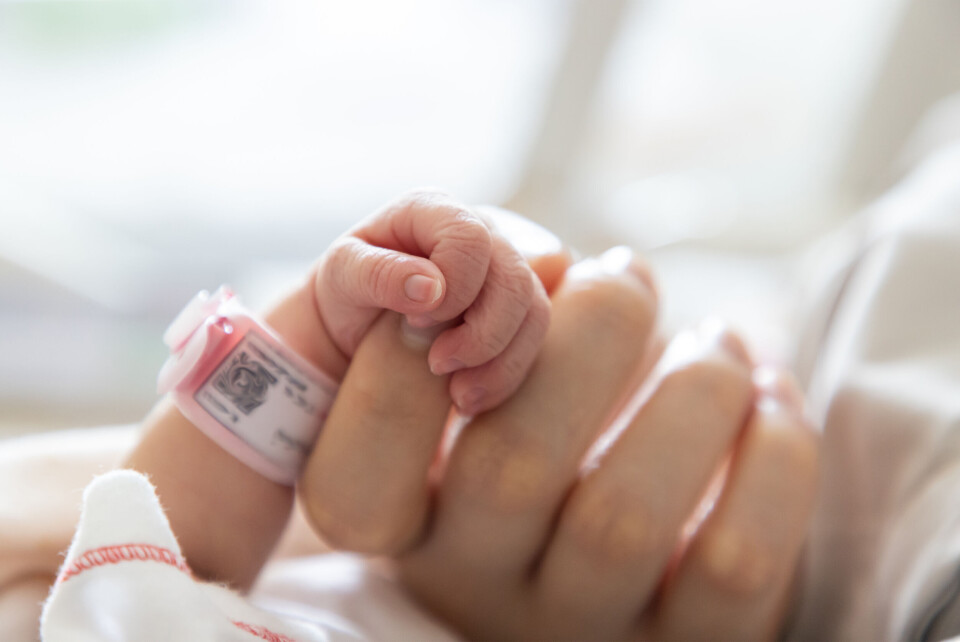-
Key Alpine pass to reopen this summer after €6m repairs
The col d'Allos in Alpes-de-Haute-Provence has been closed since 2023 due to severe weather
-
Why 500,000 people in France will soon be getting a call from health officials
A new campaign will target certain individuals with particular health conditions
-
Receive a book and a rose: France prepares to celebrate its independent bookshops
The 27th edition of the Fête de la librairie indépendante will take place tomorrow (April 26)
Fertility crisis? France’s birth rate hits near 30-year low
Experts say eco-anxiety and women’s improving career opportunities are reasons for the slowdown

France’s birth rate in March hit its lowest level for nearly 30 years, outside of the Covid lockdown, new figures reveal.
National statistics bureau Insee said there were 1,816 daily births on average in March, compared to 1,825 in January and 1,876 in February.
It said March’s figures were the lowest since at least 1994 when monthly, nationwide data first became available.
The figures were also 7% lower than in March 2022.
The only exception was a record low in January 2021, which corresponded to conceptions at the start of the first Covid lockdown in March 2020.
Over the past 10 years, there has been an overall drop in births nationwide, but especially in the regions of Occitanie and Ile-de-France (down 10.6% and 10.2% respectively). Brittany had the least significant drop, at just 2.2%.
Last year was already a national record low, with 723,000 births for the year, which is 19,000 fewer than in 2021. This figure was the lowest recorded since 1946.
Read also: Babies, life expectancy: how Covid has affected France’s population
Drop in women of age and falling fertility
Insee said the low birth rate was due to a drop in the number of women of childbearing age and a falling fertility rate over the past few years. The rate was at 1.80 children per woman in 2022, after consecutive drops between 2015 and 2020. Previously, it had hovered at two children per woman between 2006 and 2014.
Hervé Le Bras, researcher at the Institut national d'études démographiques (Ined), told FranceInfo: “It is possible that we are seeing a relatively significant change in fertility.”
He said this phenomenon was “rare”, with the last major shift attributed to the arrival of “modern means of contraception” in 1965, which “limited unwanted births”, he said.
Another major shift was in 1975, which started a trend of “an increase in the age at which men and women have children, but we still had two children per family”, Mr Le Bras added.
Why the new drop? Eco-anxiety and women’s careers
The researcher said that “eco-anxiety” was a major factor in people’s decision not to have children, or to delay it, as well as women ‘coming of age’ in their professional lives.
He said: “Women at first were just happy to be able to work at all. But now, they want to do it more fully, especially as they are now much more educated than men [in general]. That’s a big change.
“Some women prefer their careers [to having children]. Men should start having kids!” he joked.
A ‘fertility crisis’?
Mr Le Bras said the most recent drop in fertility had happened over the past seven or eight years, with the “slow decrease starting to accelerate”. This could have long-term consequences, he said.
The fertility rate needs to be at two per woman to “renew the generation”, said Mr Le Bras, “which isn’t far from the current 1.8”. However, he said that “if the drop in future months is the same as we’ve been seeing in the first three months of the year, it will soon fall to 1.67”.
“In this case, we risk seeing fewer births than deaths this year, which would be a first since the end of the 1890s.”
However, Gilles Pison, demographer and management consultant at Ined, said it was still “too early to say if the drop in birth rate in France is really ushering in a new era or whether women will have significantly fewer children than those in previous generations”.
He said: “There are periods of rise, like between 1994 and 2010, and periods of decrease like has been the case since 2010. As a result, it’s possible we are still just seeing this fluctuation between slight rises and slight falls.
“But the fertility rate has remained fairly constant. Women are still having two children, on average.”
Related articles
Research in France shows having a baby does change your brain
























